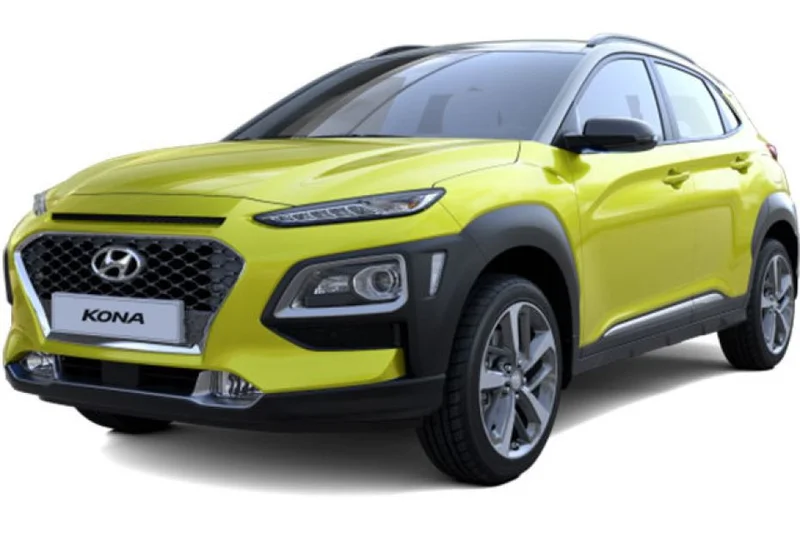360° Financial Trend Detection
360° Financial Trend Detection
Okay, let's dive right in. Hyundai. The name used to conjure images of affordable, reliable cars, right? But lately, it feels like the brand is at a major crossroads. We're seeing a tug-of-war between a potentially bright, electric future and some seriously troubling ethical issues. And honestly, it's a bit of a gut punch.
First, the electric dreams. The promise of EVs was always simpler repairs, less maintenance, and a greener future. But then this happens: a Reddit user, SoultronicPear, just trying to swap out brake pads on their Ioniq 5N—a hot hatch, mind you, so it's gonna see some action—hits a paywall. They shell out for the subscription, buy the tool, and BAM! Account suspended because it's "not intended for anyone but service professionals." I mean, come on! This is a classic example of manufacturers clinging to old business models in a world that’s begging for change. It’s like trying to charge extra for oxygen in a zero-gravity environment. As reported by Hackaday, this is a growing concern for EV owners. Hyundai Paywalls Brake Pad Changes
But here's where it gets interesting. They MacGyver a solution with a Harbor Freight scan tool. It works (sort of), proving that the tech is accessible, but Hyundai's gatekeeping is the real issue. It raises a fundamental question: Who owns our cars? Are we just leasing them from manufacturers who can dictate every repair, every modification? It's a slippery slope, and frankly, it's not the kind of future I want to see.
And then, there's the other side of the coin. The lawsuit alleging Hyundai and Kia are exploiting child labor, immigrant labor, even prison labor, in their supply chains. The idea that a company could be profiting from such blatant human rights violations… it’s sickening. Former employees painting a picture of unsafe conditions, minimal training, and a complete disregard for worker well-being? It’s a far cry from the "socially responsible" image Hyundai is trying to project, especially in places like California, where they're vying for public contracts.
I read a quote from plaintiff attorney Brian Olney: "This case is about the dirty secret behind the clean electric vehicles Hyundai is selling to government agencies… Hyundai uses children to build its vehicles, who aren’t even old enough to drive a car themselves." It's a stark, disturbing image, isn't it?
State Senator Maria Elena Durazo said it best: "If these allegations are true we have a serious problem… How can our public agencies purchase vehicles from a company whose supply-chain practices would be illegal here?" It’s a question that demands an answer.

Now, Hyundai’s response was predictable: "baseless allegations," "prioritize safety," "fully compliant." But frankly, that just doesn't cut it anymore. We need transparency. We need accountability. We need to know that the cars we're driving aren't built on the backs of exploited workers.
But here's the thing: I don't believe Hyundai is inherently evil. I think they're at a fork in the road. They can continue down the path of short-term profits and unethical practices, or they can choose a different route—one that prioritizes sustainability, fair labor, and genuine innovation.
Look, the G20 Leaders’ Summit using Hyundai STARIA MPVs is a great look, but it doesn't erase the allegations. Providing official vehicles for world leaders while simultaneously facing lawsuits over labor exploitation? The optics are… well, they're not great. Labor lawsuit says O.C.-based Hyundai, Kia are exploiting children, immigrants, inmates
However, there’s a glimmer of hope in the electrification push. Imagine a future where cars are built with ethical materials, assembled by fairly compensated workers, and easily repairable by anyone with the right tools. A future where technology empowers us, not restricts us. A future where companies are held accountable for their actions.
This isn't just about Hyundai, though. It’s about the entire automotive industry. It's about our values as consumers. It's about demanding better from the companies we support. I saw one comment on Reddit that really resonated with me: "We need to vote with our wallets. If we keep buying cars from companies that exploit workers, we're complicit in the problem."
And that's the truth. The power is in our hands.
Hyundai is facing a reckoning. The paywalled repairs, the labor lawsuits—they're all symptoms of a deeper problem. But I believe they have the potential to turn things around. They have the technology, the resources, and the global reach to be a leader in ethical and sustainable manufacturing. But it requires a fundamental shift in mindset. It requires a commitment to transparency, accountability, and a genuine respect for human dignity. The question is, are they willing to make that choice? I, for one, am holding my breath, hoping they choose the right path. Because the future of mobility—and the future of our society—depends on it.